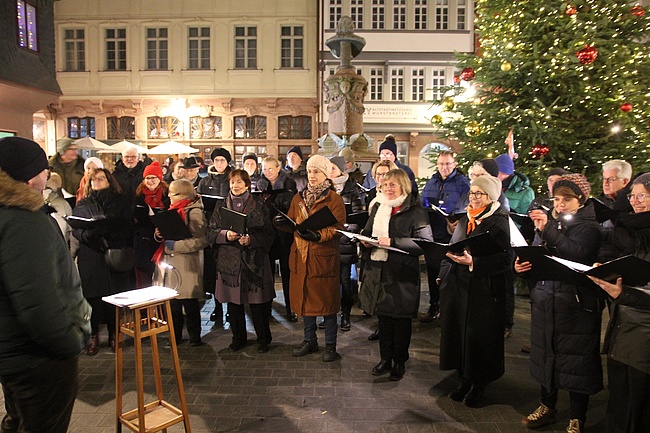(ffm) On Tuesday, October 13, the "Gastro-Gipfel", which emerged from the Frankfurt Economic Staff, met for the first time. The Frankfurt Economic Staff was created in March by City Councilman Markus Frank and has been meeting virtually on a regular basis since the beginning of the Corona crisis. The economic staff includes, among others, the mayor, department heads, the business development department, representatives of the Chamber of Industry and Commerce and the Chamber of Crafts, industry associations, as well as representatives of the employment agency, the job center and the DGB.
The topic to be discussed was explosive. The general decree, which came into force with effect from Friday, 9 October, to extend the closing time for the catering trade to the time between 11 p.m. and 6 a.m., is viewed more than critically by the Frankfurt industry associations for the catering trade, the hotel and catering trade association DEHOGA Hessen, the Initiative Gastronomie Frankfurt (IGF) and the Frankfurt Hotel Alliance (FHA), as the rising infection figures cannot be proven to be attributable to the catering trade.
This statement is contradicted by the head of the Frankfurt health department, Prof. René Gottschalk: "There is no evidence for this statement."
Among others, the head of the health department Stefan Majer, Prof. René Gottschalk and Antoni Walczok from the health department of the city of Frankfurt, Karin Müller, head of the Frankfurt public order office, as well as Julius Wagner, chief executive officer of the DEHOGA Hessen, had followed the invitation of city councilor Markus Frank. In the exchange, the representatives of the association made it clear once again that the measure of introducing the curfew is massively affecting the businesses in the Main metropolis that are affected by the crisis. Gastronomy and the hotel industry have been fighting for survival for months. Existences and jobs are at stake.
"The hospitality businesses have positioned themselves very well over the past six months: Despite tight budgets, entrepreneurs have invested in upgrading existing filter and ventilation systems or Plexiglas partitions, i.e. in safety measures and hygiene concepts for the guests and the employees," Madjid Djamegari, chairman of the IGF, elaborated.
"Yes, the late evening and night hours are economically essential for the businesses in Frankfurt. Since the announcement of the curfew, it hails masses of cancellations for the second round of restaurant reservations in the evening," underlined James Ardinast, deputy chairman of the DEHOGA KV Frankfurt.
Stakeholders stressed that it is rather the unregulated meetings that take place in private, where distances and mouth-to-nose protection are not respected. The curfew will intensify these critical encounters, they said, because - especially young people - will not be contained by a curfew.
"I know about the difficult situation of the hospitality businesses. That's why this measure has not been easy for me," says Head of Health Majer and further makes it clear with concern that the high incidence figures have meanwhile brought the city of Frankfurt am Main into the red zone on the escalation level of the country. "The curfew criticized by the restaurant industry is important to curb the incidence of infection. The late curfew at 11 p.m. makes sense with a view to neighboring municipalities, such as our neighboring city of Offenbach. Because it can't be that different curfews apply and tempt people to move to a neighboring municipality to continue partying." In this respect, the head of the health department will continue to seek regional exchange and exchange with the state government in order to come to a coordinated approach in the region.
Health department head Prof. Gottschalk and his deputy Walczok report that the outbreak can currently no longer be pinned down to individual hotspots and is therefore more widespread, and close to half of the new infections affect those aged 20 to 40. "Even if it is no longer possible to clearly trace whether the infection comes from the private environment, at parties, from restaurants or public transport, it is all the more important to avoid possible infections, especially for older people or people with pre-existing conditions. In any case, the observance of distance rules and hygiene measures in social contacts is difficult with increasing alcohol levels, therefore precautionary measures should also be directed towards this, this explains the introduction of a curfew and alcohol bans in public places", according to the assessment of the health experts. The federal government on Wednesday, October 14, set a mandatory curfew for catering establishments at 11 p.m. at an incidence level of 50.
All stakeholders agreed that they will act responsibly in the interest of all, citizens and businesses, to work together to keep the incidence of infection under control. The representatives of the associations offered more far-reaching measures for this purpose: "If we could get the existence-threatening curfew off the table, a restriction of serving alcohol to seated guests, as well as a prohibition of take-away sales of alcoholic beverages, would also be possible", suggested Robert Mangold, chairman of the gastronomy section of DEHOGA Hessen. "In the case of high incidence levels, temperature controls might also be conceivable," Mangold said.
Councillor Majer offered club operators a joint discussion on the application process, which was welcomed by club operators.
In the context of the "Gastro Summit" it was also initiated to set up a joint communication strategy with the city of Frankfurt. Tradespeople and guests should thus be informed promptly and up-to-date about applicable ordinances in order to increase implementation and acceptance.
City Councilor Frank welcomed the dialogue: "Especially because so much is at stake, it is important to create a common understanding for joint measures. The industry representatives are important partners for us to create acceptance for the corona-related drastic measures. Politics and administration must see that many livelihoods are at stake. More than 2000 gastronomy businesses are affected in Frankfurt am Main, and with them numerous jobs that are acutely endangered. We need to talk about concepts to ensure the survival of the businesses in the coming months. But we also need the acceptance of the people to comply with the new rules, in public and private space and certainly for the next few months."
IHK President Ulrich Caspar also stressed the two sides of the coin, saying that only if the incidence of infection is kept low can a necessary economic normalisation return.
Consensus could be reached with regard to the involvement of the industry associations in the joint development of medium-term perspectives, each coordinated with the current incidence figures. The next "gastro summit" will take place promptly.












